Disclosure: This article contains affiliate links. We may earn a commission from purchases at no extra cost to you, which helps our travel content.
The first time I stepped into a traditional tasca in Lagos, Portugal, I was struck by how the simple act of sharing a meal could tell such a profound story about place and people. The clinking of small ceramic plates, the melodic Portuguese conversations flowing around me, and the rich aromas of olive oil and seafood created an immersive sensory experience that no guidebook could adequately describe. As someone who's spent years helping patients reconnect with meaningful activities, I've found that traditional Portuguese dining rituals offer couples a perfect opportunity to practice mindful presence with each other—a weekend in Lagos centered around culinary exploration might be the most therapeutic travel experience you never knew you needed.
Morning Rituals: The Art of Portuguese Breakfast
Lagos mornings begin slowly, with cafés opening their doors as golden light bathes the whitewashed buildings. Unlike the heavy American breakfasts I grew up with in Irvine, Portuguese mornings are an exercise in simplicity and quality. The pastelaria (pastry shop) is where locals start their day, and where you should too.
My ritual begins at Padaria Central, a small bakery tucked away from the main tourist thoroughfare. Here, I order a galão (espresso with foamed milk) served in a tall glass that allows me to watch the coffee and milk create mesmerizing patterns. Alongside, a freshly baked pastel de nata – Portugal's famous custard tart with a perfectly caramelized top and flaky crust.
The tactile experience of breaking through the crisp pastry while sipping strong coffee creates what we therapists call a 'flow state' – complete immersion in the moment. I've found it's best to enjoy this ritual without phones or cameras (though I admit to carrying my travel journal to jot down sensory observations).
What strikes me most is how this simple breakfast ritual invites conversation. At communal tables, locals read newspapers and discuss politics with animated hand gestures, while the baker knows everyone by name. It's a reminder that food isn't just sustenance but a social anchor.
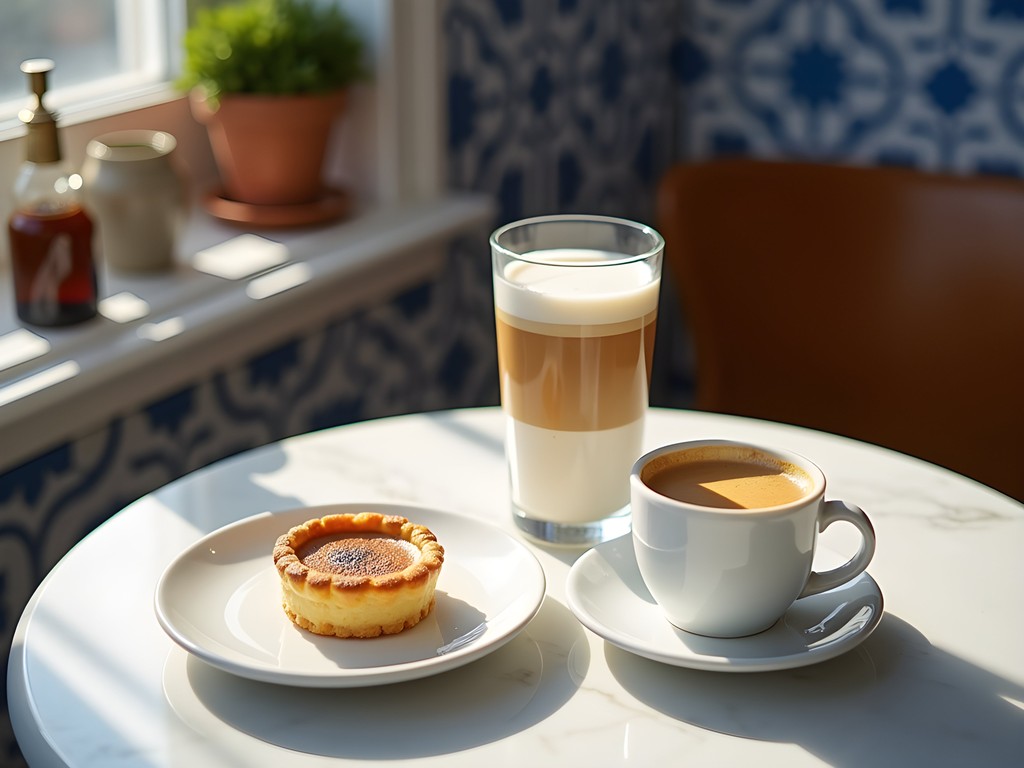
💡 Pro Tips
- Visit pastry shops before 9am to see them at their most authentic
- Order a 'meia de leite' if you prefer a less strong coffee option
- Always eat your pastéis de nata while they're still warm
Market Connections: Mercado de Lagos
The Mercado de Lagos represents what occupational therapists call a 'therapeutic environment' – a space that naturally encourages beneficial sensory experiences and meaningful interactions. I've visited markets across Portugal, from Lisbon to small villages in the north, but Lagos' market holds a special place in my travel memories.
Visit on Saturday mornings when local farmers bring produce from the countryside. The market's organization follows a beautiful functional logic – seafood near the entrance (where the scent can escape), followed by butchers, then the vibrant produce section, and finally, stalls selling regional specialties like queijo de figo (fig cheese) and aguardente de medronho (fruit brandy).
What I appreciate most is how the market facilitates connection between producer and consumer. Unlike our sterile American supermarkets, here you can ask the fishmonger which boat brought in today's catch or learn from an elderly woman selling herbs how to properly use oregãos do Algarve in cataplana stew.
For couples visiting Lagos, I recommend purchasing ingredients for a picnic lunch. My standard market haul includes a crusty bread from the bakery section, locally-made sheep cheese, olives marinated in citrus, and whatever fruit looks most appealing. Pack these treasures in a insulated tote to keep everything fresh while you find the perfect clifftop spot overlooking Ponta da Piedade.
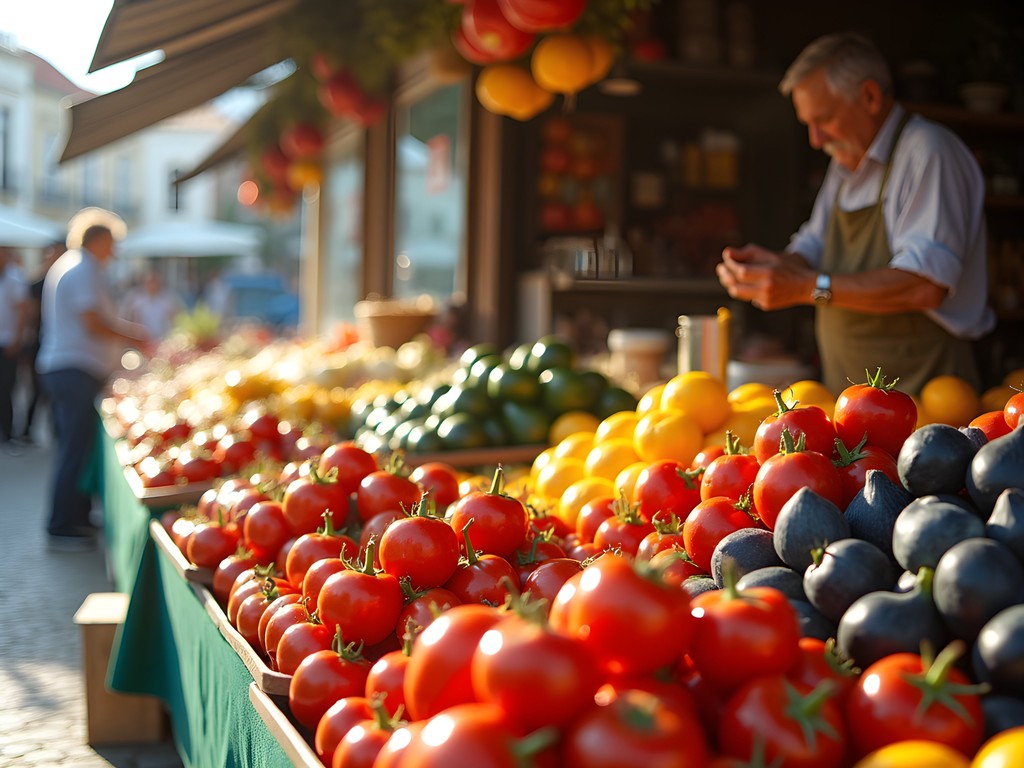
💡 Pro Tips
- Arrive at the market before 11am for the best selection
- Bring small Euro bills as many vendors don't accept cards
- Ask vendors for cooking suggestions - most speak enough English to share simple recipes
The Cataplana Experience: Algarve's Culinary Treasure
No exploration of Lagos cuisine would be complete without experiencing the region's signature dish: cataplana. Named after the distinctive clam-shaped copper cooking vessel it's prepared in, this seafood stew represents the perfect marriage of Arab cooking techniques (from centuries of Moorish influence) and the Atlantic's bounty.
During my third visit to Lagos, I participated in a cooking workshop at a small family restaurant in the old town. The chef, António, demonstrated how the cataplana's design creates a perfect micro-environment for steaming seafood. As an occupational therapist who's worked with adaptive cooking tools, I was fascinated by how this traditional equipment has remained essentially unchanged for centuries because its design is so functionally perfect.
The preparation follows a methodical process: first sautéing onions, garlic and bell peppers in olive oil, then adding chorizo for smoky depth, followed by tomatoes and white wine. The seafood – typically clams, shrimp, and chunks of firm white fish – is added last. The vessel is then sealed and the ingredients steam together, creating a broth that captures the essence of the Algarve.
For couples seeking an interactive dining experience, I recommend booking a table at Restaurante Casa do Prego, where they prepare the cataplana tableside and open it with theatrical flair. The steam release moment creates what sensory integration theory calls a 'shared attentional focus' – a powerful bonding experience.
If you're inspired to recreate this dish at home, authentic cataplana vessels make wonderful souvenirs. I purchased mine from a small cookware shop near the marina, though you can now find them online through Portuguese imports if you're worried about fitting one in your luggage.

💡 Pro Tips
- Reserve cataplana dishes at restaurants at least 2 hours in advance as they're prepared to order
- Cataplana typically serves two people, making it perfect for couples
- Ask for crusty bread to soak up the flavorful broth – it's the best part
Sweet Endings: The Almond Route
The Algarve's confectionery traditions tell a complex cultural story that spans centuries of Moorish influence, Catholic monastery innovations, and the region's agricultural heritage. Lagos offers a perfect introduction to these sweet traditions through what I've come to call the 'Almond Route' – a self-guided tour of the old town's best pastry shops.
Almonds are to Algarvian desserts what rice is to Asian cuisine – a fundamental ingredient transformed into countless variations. This agricultural focus makes perfect sense from an occupational perspective; the region's microclimate is ideal for almond cultivation, and the preservation techniques developed around this harvest created sustainable food practices.
Start your sweet exploration at Pastelaria Gomba, where the morgado (a colorful marzipan confection) showcases the artistic side of local pastry. Each one is hand-decorated with edible natural dyes to resemble fruits or flowers. The texture offers a fascinating sensory contrast – firm exterior yielding to a soft, sweet interior.
Continue to Doce Sentido, a tiny shop specializing in dom rodrigos – threads of egg yolk cooked in sugar syrup, wrapped in colorful foil. The technique dates back to convent kitchens, where nuns developed recipes using abundant egg yolks (as egg whites were used for clarifying wine and starching religious garments).
For those interested in bringing these flavors home, I recommend picking up a copy of Portuguese dessert cookbook which includes detailed instructions for recreating these traditional sweets. During my last visit, I also purchased a beautiful wooden almond grinder from a small artisan shop – both a functional kitchen tool and a meaningful souvenir that connects me to this culinary tradition.

💡 Pro Tips
- Most pastry shops offer small mixed boxes perfect for sampling different varieties
- Visit confectioneries in the afternoon when fresh batches are typically ready
- Look for treats labeled 'conventual' to try authentic monastery recipes
Wine Pairing: Discovering Algarve Vintages
While Portugal's wine regions like Douro and Alentejo receive more international attention, the Algarve's small-scale vineyards produce fascinating wines uniquely suited to the region's cuisine. As someone who appreciates the mindful aspects of wine tasting – the focused attention on sensory details that creates present-moment awareness – I've found Lagos to be an excellent base for viticultural exploration.
My favorite discovery was learning how the maritime influence creates distinctive flavor profiles in Algarve wines. The combination of Atlantic breezes, limestone-rich soil, and indigenous grape varieties results in whites with pronounced minerality and reds with surprising freshness despite the warm climate.
For couples seeking an accessible introduction, I recommend the wine tasting at Adega do Levante, a small family-run wine shop in Lagos' old town. The owner, Maria, offers a structured tasting of regional wines paired with local cheeses and charcuterie. What makes this experience special is Maria's storytelling – each wine comes with tales of the families who produce it, often spanning generations.
Particularly memorable was a Negra Mole rosé – made from an ancient grape variety found almost exclusively in the Algarve. Its subtle strawberry notes and saline finish paired perfectly with the grilled octopus served at nearby restaurants.
For those wanting to delve deeper, consider booking a wine tour to visit small producers in the hills north of Lagos. These half-day excursions provide context for understanding how geography and tradition influence what ends up in your glass. I use a pocket-sized wine journal to record tasting notes and food pairing successes – it's become a valuable reference for recreating these flavor combinations back home.

💡 Pro Tips
- Local white wines pair beautifully with cataplana and other seafood dishes
- Ask for 'vinho da casa' (house wine) at traditional restaurants – often excellent value
- Look for wines made from indigenous varieties like Negra Mole and Crato Branco for authentic regional expression
Final Thoughts
As I sit at a small harborside restaurant on my final evening in Lagos, watching fishing boats return with the day's catch that will soon become tomorrow's meals, I'm reminded why culinary exploration creates such profound travel experiences. Food in Lagos isn't just sustenance but a living museum of cultural exchange, agricultural wisdom, and community ritual. The Portuguese understanding of petiscos (small plates meant for sharing) reflects a deeper philosophy about how meals should bring people together in conversation and connection.
For couples seeking meaningful travel experiences, Lagos offers a perfect balance of sensory pleasure and cultural immersion through its food traditions. The unhurried pace of dining, the emphasis on quality ingredients rather than elaborate preparation, and the natural beauty that surrounds every meal create an environment where genuine connection happens effortlessly.
Whether you're sampling cataplana at a family-run restaurant, selecting fresh produce at the morning market, or discovering local wines as the sun sets over the Atlantic, Lagos invites you to engage all your senses. And isn't that engagement – that full presence in the moment – what we're really seeking when we travel together?
✨ Key Takeaways
- Lagos offers authentic culinary experiences accessible to food lovers of all knowledge levels
- The seafood-focused cuisine reflects the region's maritime heritage and Mediterranean influences
- Small, family-run establishments often provide the most authentic dining experiences
- Food traditions in Lagos tell stories of cultural exchange spanning Moorish, Atlantic, and Mediterranean influences
- Sharing meals Portuguese-style naturally encourages connection between traveling couples
📋 Practical Information
Best Time to Visit
year-round, though May-June and September-October offer pleasant weather with fewer crowds
Budget Estimate
€50-100 per day per person for meals and food experiences
Recommended Duration
3-4 days to fully explore the culinary landscape
Difficulty Level
Beginner

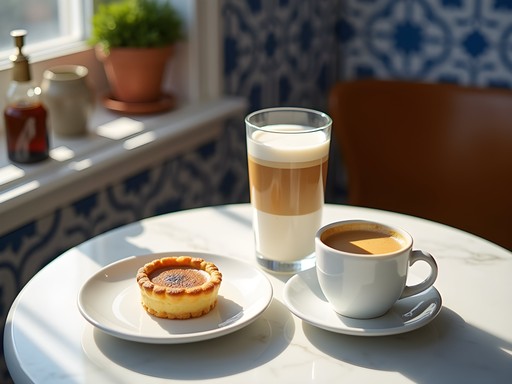
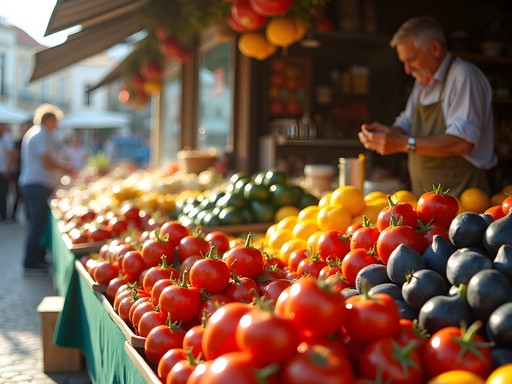
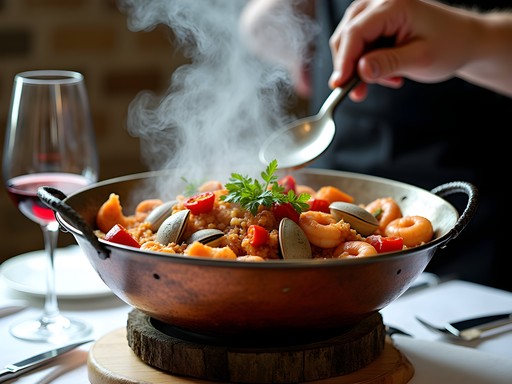

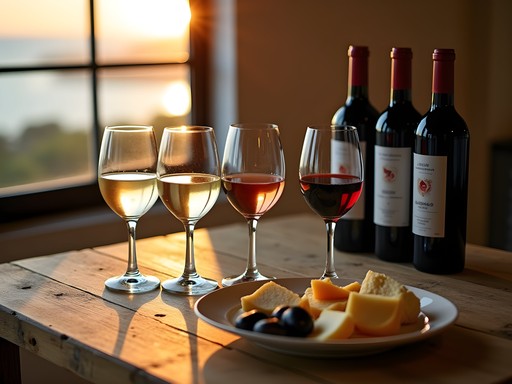




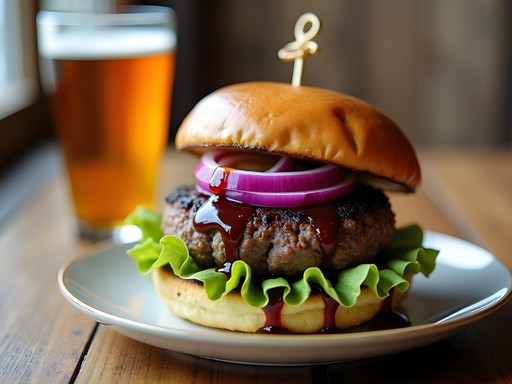
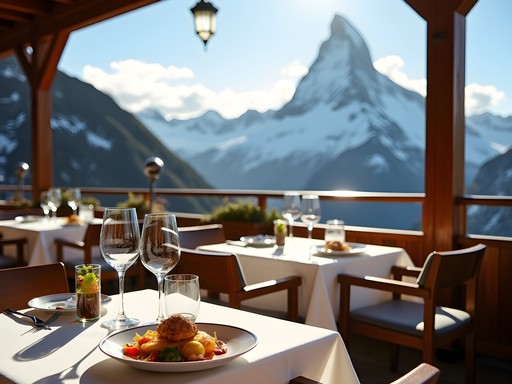
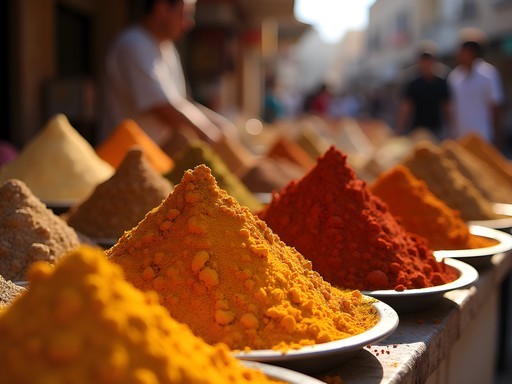
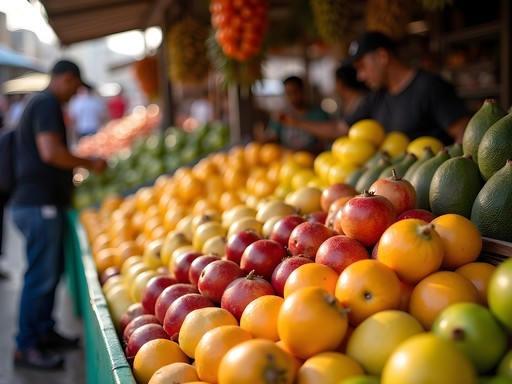
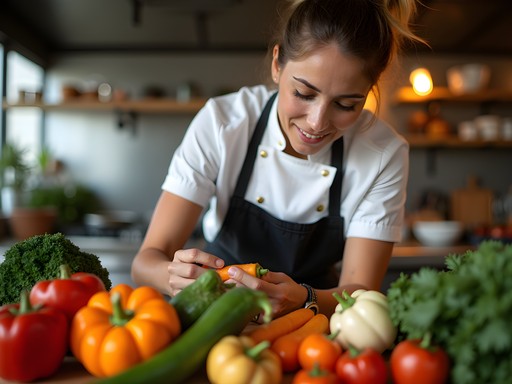
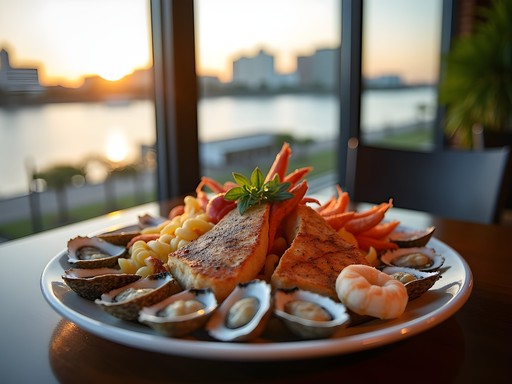
Comments
adventureace
Heading to Lagos next week! Any specific pastries I should try besides the almond ones you mentioned? I have a serious sweet tooth!
John Phillips
Definitely try the 'Dom Rodrigos' - they're made with egg yolks and sugar, wrapped in colorful foil. Pastelaria Gomba in the old town makes excellent ones. Also, Pastel de Nata is a must - not unique to Lagos but the ones at Padaria Central are exceptional!
adventureace
Perfect! My sweet tooth thanks you in advance!
Taylor Moreau
John, this is a masterful culinary guide to Lagos! I was there last autumn for a business conference and extended my stay specifically to explore the food scene. Your description of the Mercado de Lagos brought back wonderful memories - I spent three mornings there chatting with local vendors. The fishmonger with the bushy white mustache (I think his name was António?) sold me the freshest sea bass I've ever prepared. One addition I'd suggest is Dom Sebastião in the old town - their pork with clams (Carne de Porco à Alentejana) was spectacular, and the wine list features excellent local options from small producers. For anyone visiting, I'd recommend bringing a pocket phrasebook - the vendors really appreciate even basic Portuguese attempts, and you'll get much better recommendations!
adventureace
Dom Sebastião is amazing! We stumbled across it last month. That pork and clam dish is incredible!
wanderlustone
That cataplana looks amazing! Definitely on my list for when I visit Lagos next spring!
Taylor Moreau
You absolutely must try it! The seafood version at Restaurante O Camilo changed my life. Ask for extra bread to soak up that sauce.
wanderlustone
Thanks for the tip! Adding it to my list right now!
waveace
Those almond cakes are insanely good! Great post.
John Phillips
Right? I brought back a box and they didn't last two days!
wanderlustadventurer
Are the almond sweets seasonal or available year-round? Planning a winter trip and hoping to try them!
John Phillips
They're available year-round, but winter is actually almond harvest season in the Algarve, so you might even catch some local almond festivals if you're lucky!
Hunter Thompson
Mate, this post has me CRAVING those Portuguese breakfast pastries! Was in Lagos last summer and became absolutely addicted to pastel de nata with that strong coffee. Found this tiny place called Padaria Central where the old ladies would give you an extra pastry if you attempted to speak Portuguese (my terrible accent must have been entertaining). One tip for anyone heading there - the restaurants along the marina are decent but pricey. Head about 3 streets back into the old town and you'll find tascas serving the same cataplana for half the price. I used my pocket phrasebook constantly - even basic Portuguese goes a long way with the locals. The seafood rice at A Forja was so good I went back three times!
roamzone
Just got back from Lagos last week and your post captures the food scene perfectly! That Mercado de Lagos is a gem - we went three times during our stay. The old fisherman who sold us fresh percebes (goose barnacles) even showed us how to eat them properly. Also discovered those almond cookies you mentioned at a tiny bakery in the old town. I think the best meals we had were actually in the smallest tascas where nobody spoke English and we had to point at what the locals were eating. Didn't regret it once!
waveace
Those percebes are wild! Took me a minute to figure them out but so worth it.
roamzone
Right? They look so alien but taste like pure ocean. Definitely not something I would've tried without the local encouragement!
wanderlustadventurer
That cataplana experience sounds amazing! Any specific restaurants in Lagos you'd recommend for the most authentic version?
John Phillips
Thanks for asking! Casa do Prego near the marina has an incredible seafood cataplana. For a more rustic experience, try O Camilo - it's a bit out of town but worth the trip. The owner catches the seafood himself!
wanderlustadventurer
Perfect, adding both to my list for next month's trip!
MariaC
If you're in Lagos, don't miss the little bakery called Padaria Central on Rua 25 de Abril. Their pastel de nata are even better than the famous ones in Lisbon (controversial opinion, I know!). Go early morning for the freshest batch.
LagosLover
I second this! Their bread is also amazing. Perfect for making sandwiches for beach days.
SunnyDayTravel
Those almond sweets look incredible! Adding to my list!
Sophia Gomez
This post brought back so many memories! I was in Lagos last spring for a business conference and extended my stay just to explore the food scene. John, your description of the morning pastry ritual is spot on - I became completely addicted to pastel de nata with my morning coffee! One experience I'd add: try the seafood rice (arroz de marisco) at Casinha do Petisco. It's this incredible saffron-infused dish that's somewhere between risotto and paella. The chef there told me they use a Portuguese cookbook that's been in their family for generations. I bought a copy before leaving and have been attempting (badly) to recreate those flavors at home ever since!
Venture X
Premium card with 2X miles, $300 travel credit, Priority Pass